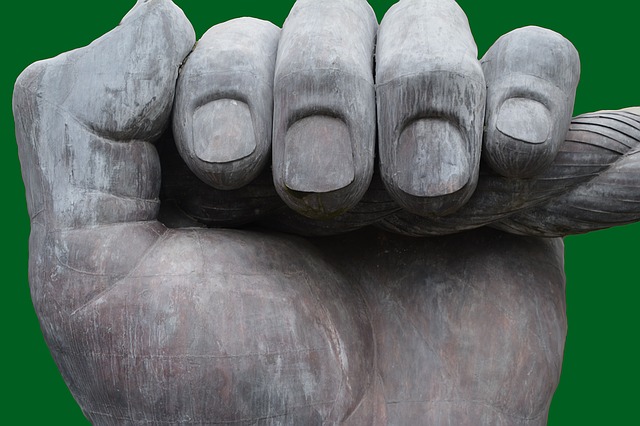
Drop the Rock: Unloading Unforgiveness
As I dug through the stones, scraping and scratching each knuckle, I said to my husband, “Remind me never to use landscape rocks again.”
I just might not take my advice though, because rocks amaze me. Whether smooth or rough, rocks can be used to beautify and build, or to damage and destroy.
Have you ever considered the rocks in the Bible?
Stones of the Bible
Stones and rocks form the foundations for buildings. Christ is called our Cornerstone (1 Peter 2:4).
They also serve as pillows (Genesis 28:1-11) and memorials (Joshua 4:1-8).
Not always shown in a positive light, rocks cause people to stumble (1 Peter 2:8).
Moses even struck a rock out of anger (Numbers 20:10).
Rocks have been used as weapons by the good-guy—David fighting Goliath (1 Samuel 17)— and the not-so-good, as in the stoning of Stephen (Acts 7).
“Stone the Woman!”
Our church recently worked through The Red Letter Challenge, by Zach Zehnder. In it, we studied about the woman caught in adultery. When the Pharisees presented her to Jesus, they declared, “The law of Moses tells us to stone such a woman!”
Jesus answered, “Let any of you who is without sin be the first to throw a stone at her.”
If you’re familiar with the event from John 7, you know that one by one those who accused the guilty woman walked away.
Jesus, the only One without sin, stood alone with her. Did he pick up a stone? No. Because of his great love, Jesus told the woman, “You are forgiven. Leave your life of sin.”
He forgave her.
He forgives us.
As Zehnder put it, “And as forgiven people, we are to emulate Jesus. If Jesus dropped His rock for us, we need to drop our rocks as well.”
Rock Collection

Conversely, every time we don’t forgive, it’s like picking up a rock. Our hurt feelings tempt us to hurl it at the one who’s harmed us. Like flinging gravel, we may even spew words in retaliation.
Or we may refrain from throwing, and instead, stow the rock. We decide to keep it and tuck it just out of sight in a neat little pack on our back. Each time we’re offended or hurt, we pick up another and another, until our sack is bulging and the weight of it threatens our health. I don’t know about you, but my back can’t take that kind of strain, neither can my soul.
Unforgiveness is the heavy burden we carry, not hurting those who wronged us, but instead harming us! The weight of unforgiveness can become so unbearable we can’t help but hurl a few rocks just to get relief, sometimes hitting innocent bystanders.
There’s a saying: Hurting people hurt people.
We’ve all been there. We’ve all done it.
It’s time to unpack the sack.
Unloading Unforgiveness
If you’re bearing the burden of unforgiveness, take a close look at the rocks you’ve been packing around. Start with one. Whose name is on it? Do you even remember why it’s there? Maybe you do. Pray for the strength to drop it. Pull out another and do the same. With God’s help, you can throw down each one until there is no need for a sack.
Now picture in your mind’s eye all those rocks on the ground. A person could make an altar of them. Turn those weapons of hate into a memorial of God’s forgiveness and worship Him with the freedom that follows.
 Pixabay at Pexels
Pixabay at Pexels
I will probably avoid landscape stones to save my fingers and instead admire my neighbors beautiful rock bed. One thing I know, rocks are NOT meant to be carried around. So, what are you waiting for? Drop the rock.
About Post Author
You May Also Like

The Rest of the Story
October 31, 2015
Put on Your Boots and Step Out of the Garden of Regret
March 4, 2024

2 Comments
Lindsey Windrow
Thank you, Gretchen. Love the idea and image of “unloading our rocks” and forming an altar. An open heart and loving kindness are both the soft and solid foundations for forgiveness.
Gretchen Huesmann
Thanks for reading and commenting, Lindsey! The altars of old helped remind God’s people of his faithfulness. Ours can do the same. I love your wording “hearts…both soft and solid”… yes! Beautiful description of the willing heart.